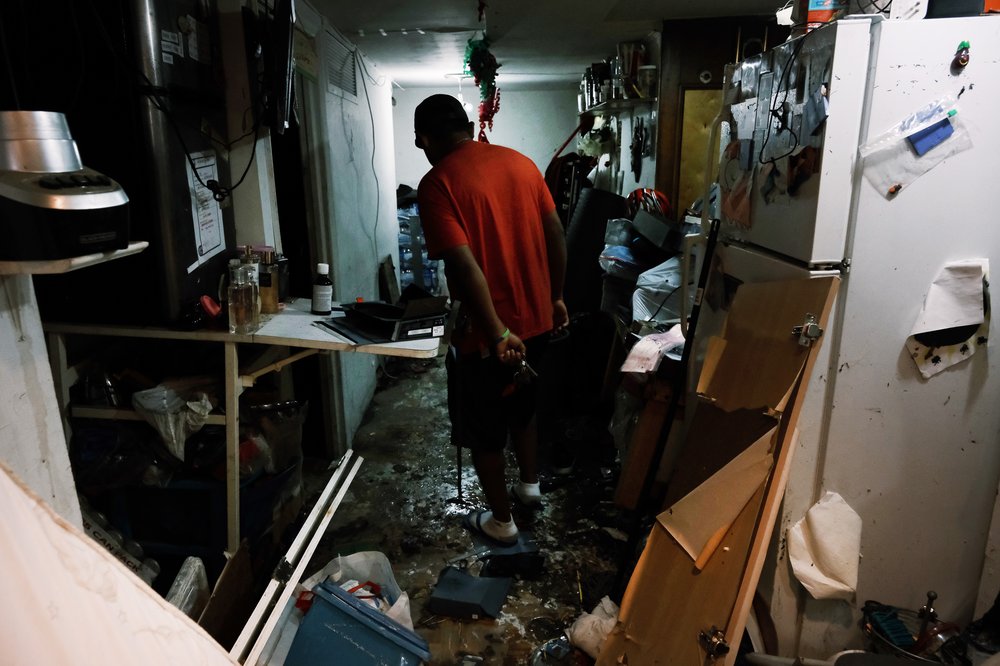'Absurd' rules torpedo effort to make NYC's basement apartments safe and legal
May 23, 2023, 2:09 p.m.
NYC basement legalization effort spoiled by parking rules, other ‘completely absurd’ restrictions.

Parking rules, ceiling heights and soaring costs are torpedoing efforts to make basement apartments safer for low-income and immigrant New Yorkers, despite the city’s attempts to bring existing units up to code, a new analysis shows.
Owners of just five buildings in East New York have stuck with the city’s 2019 basement legalization pilot program, with renovations underway at just one building, according to an analysis by the Citizens Housing and Planning Council released on Tuesday.
While many basements or cellars already in use could have qualified for conversion, cost-prohibitive rules prevented the needed renovations, CHPC found. The city pilot program estimated that there are 16,000 small buildings with basements in East New York alone.
New York City’s tens of thousands of basement units drew renewed attention after Hurricane Ida flooded homes throughout the area in September 2021, killing 13 people in New York City, including 11 who were trapped in basement apartments at the time of the storm.
CHPC Executive Director Howard Slatkin, a former city planning administrator, said the pilot program reveals just how many hurdles are in place when it comes to legalizing the units.
“Basement and cellar apartments are an important part of the housing system,” Slatkin said. “Immigrant New Yorkers in particular rely on small homes with additional apartments in them. This is part of the set of housing resources that they might have available to them.”
Slatkin said many of the safety requirements make sense, like installing multiple exits, retrofitting windows to serve as escape hatches or installing sprinkler systems. But other measures, like forcing owners to add a parking space or dig out their foundations to add a few extra inches of ceiling height, add unnecessary costs or automatically disqualify buildings.
The city’s housing and planning agencies had hoped to renovate 40 underground apartments under the 2019 pilot program. They partnered with the nonprofit Cypress Hills Local Development Corporation to target 102 potential participants but nearly all of those buildings were eventually excluded as a result of state or city restrictions, the report found.
Another issue is building size and local land use rules. When converting a cellar or basement to a residential apartment, that space gets added to the building’s floor area ratio calculation, potentially making the dwellings too large under zoning restrictions, even though no space was actually added.
The steep costs of bringing basement units online also led many building owners to drop out of the pilot program, according to the report.
Renovations would have cost at least $250,000 for the vast majority of potential participants, equaling an average of 45% of their total assessed values, according to CHPC. The city’s housing agency was limited to issuing loans of note more than $120,000.
Slatkin is urging the state to allow New York City to change its own dwelling laws to upgrade basement apartments and let city agencies issue more loans.
“We can create new rules that are focused on safety but are much simpler and more cost effective to getting there,” he said. “Today, because you’re not allowed to legalize some of these units at all these safety improvements are impossible.”
Ryan Chavez, the basement apartment conversion program director at Cypress Hills Local Development Corporation, blamed the failed conversions on the “completely absurd” rules that are “physically impossible or prohibitively expensive.”
“It’s definitely been frustrating,” Chavez said. “So many homeowners are actually prohibited from completing basic health and safety renovations to their basements by codes that have nothing to do with the basement.”
He recommended lawmakers change regulations, like lifting the extra parking space requirement.
Mayor Eric Adams and the city’s housing and planning agencies are on board with calls to make it easier to legalize basement apartments.
Chief Housing Officer Jessica Katz, who led CHPC before joining the Adams administration, pushed state lawmakers to take action in the last state budget to make basement legalization easier.
"These are traditionally some of our most affordable homes, but people living in illegal basements do not have the tenant rights they deserve and they do not have the safe conditions that they should have," Katz said at a press conference in March.
The state did not implement any of the recommendations, however.